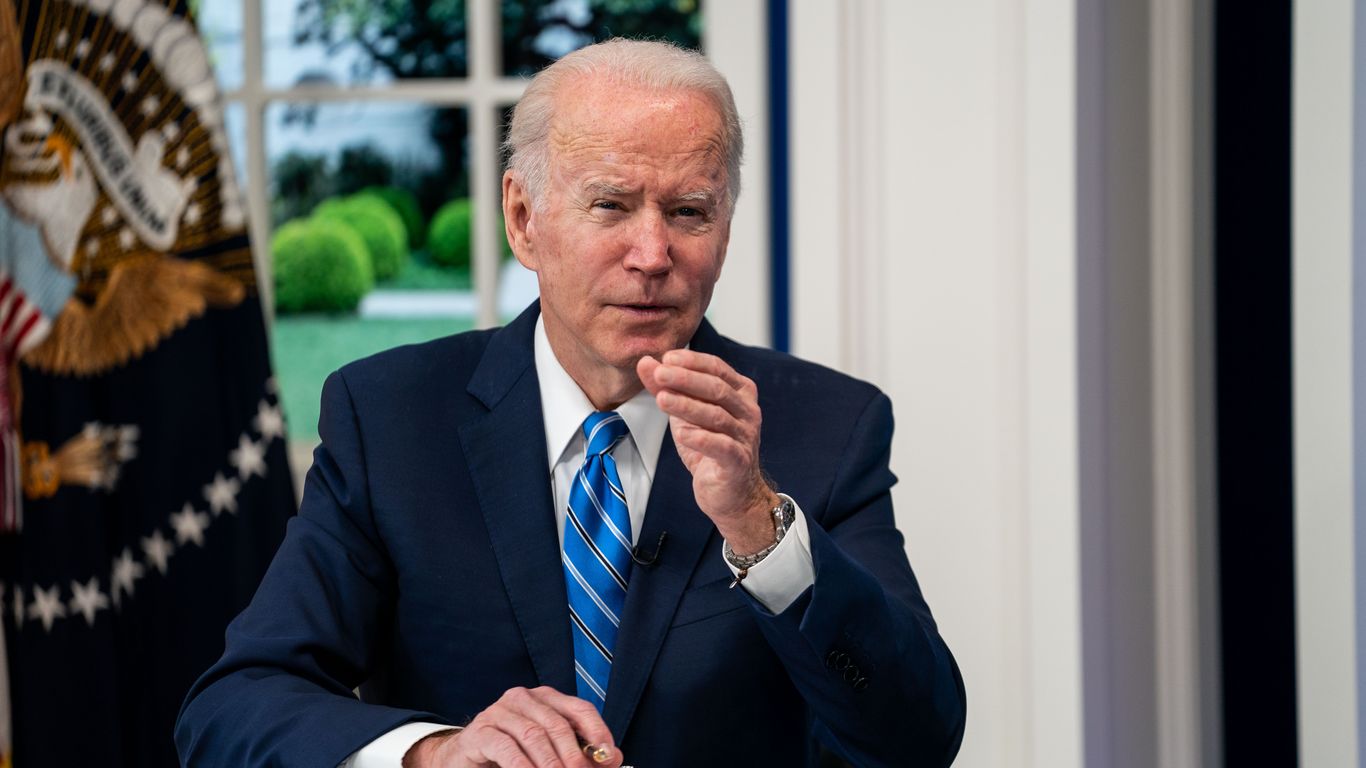The Biden administration will offer $1 billion to help independent meat and poultry producers in its latest measure to fight inflation, the White House announced Monday.
Driving the news: The Biden administration has argued that large corporations and corporate monopolies are responsible for rapidly rising prices. It specifically blames four monopolists in the meat-processing industry for increasing meat prices.
- None of the four industry giants cited by the White House — Tyson, JBS, Marfrig and Seaboard — has made a major acquisition in the past few years, but each has a long history of inorganic growth.
What they’re saying: “Over the last few decades, we’ve seen too many industries become dominated by a handful of large companies that control most of the business and most of the opportunities — raising prices and decreasing options for American families, while also squeezing out small businesses and entrepreneurs,” the White House said.
- “Four large meat-packing companies control 85% of the beef market. In poultry, the top four processing firms control 54% of the market. And in pork, the top four processing firms control about 70% of the market.”
- “When dominant middlemen control so much of the supply chain, they can increase their own profits at the expense of both farmers — who make less — and consumers, who pay more.”
The big picture: Current antitrust law, which hasn’t changed much in any of our lifetimes, is mostly predicated on pricing concerns, Axios’ Dan Primack writes. As such, regulators have typically cared more about horizontal mergers (where a company subsumes a competitor) than vertical mergers (where it buys a company in a different market).
- Politicians of both parties have been pushing for antitrust laws to be rewritten and enforcement to be creatively expanded. Particularly when it comes to big tech, where competition issues are often divorced from what consumers pay (at least directly).
- Biden’s beef battle doesn’t negate the adoption of broader antitrust policies, but does suggest that pricing will remain the cornerstone concern.
The other side: The Biden administration has been criticized by the North American Meat Institute, which says the government does not understand agricultural economics, Axios’ Felix Salmon reports.
- Some economists, including Harvard’s Larry Summers, say increases in demand won’t create higher inflation in monopolistic industries than in competitive ones.
- But Summers also argued that competition helps reduce inflation because it makes it harder to raise prices.
State of play: President Biden’s plan to support the meat and poultry supply chain includes $375 million in grants from the Department of Agriculture for independent processing plants.
- $275 million to provide loans and other support “to businesses at rates and on terms that increase access to long-term, affordable capital,” the White House said.
- $100 million to train the meat and poultry workforce.
- $100 million to finance infrastructure needed by independent producers to “move their product throughout the supply chain.”
- $100 million to help “small and very small processing plants keep up with unprecedented demand” by reducing inspection costs.
The funding will come from the $1.9 trillion American Rescue Plan, which Biden signed into law in March.
What we’re watching: Later this morning, the president will meet virtually with family and independent farmers and ranchers to discuss his administration’s work to boost competition and reduce prices in the meat-processing industry.
